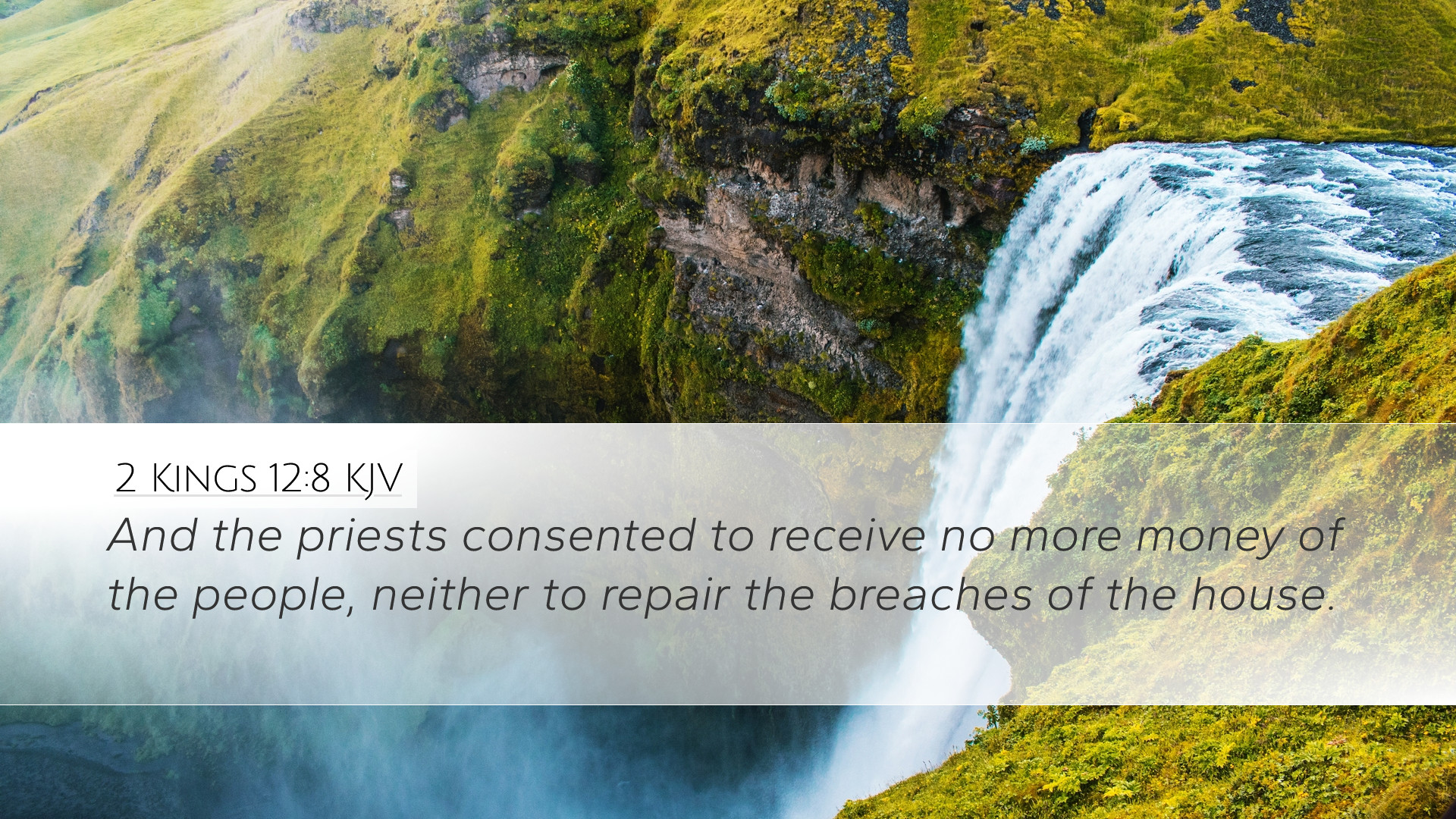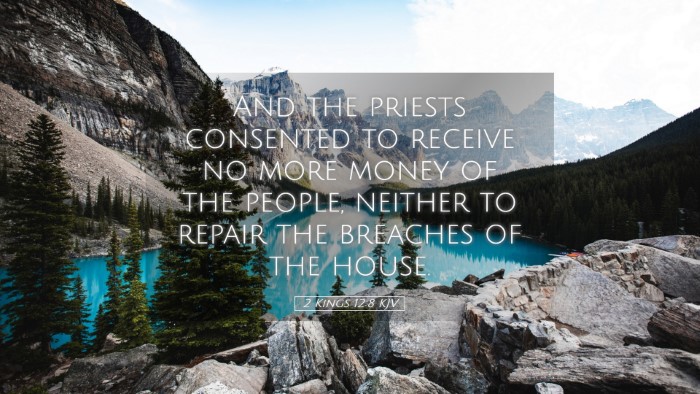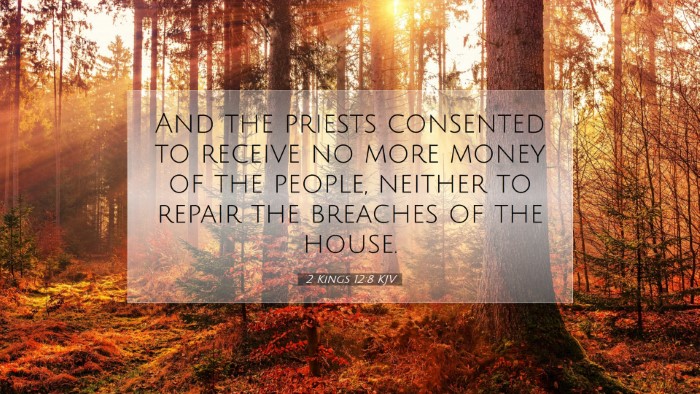Old Testament
Genesis Exodus Leviticus Numbers Deuteronomy Joshua Judges Ruth 1 Samuel 2 Samuel 1 Kings 2 Kings 1 Chronicles 2 Chronicles Ezra Nehemiah Esther Job Psalms Proverbs Ecclesiastes Song of Solomon Isaiah Jeremiah Lamentations Ezekiel Daniel Hosea Joel Amos Obadiah Jonah Micah Nahum Habakkuk Zephaniah Haggai Zechariah Malachi2 Kings 12:8
2 Kings 12:8 KJV
And the priests consented to receive no more money of the people, neither to repair the breaches of the house.
2 Kings 12:8 Bible Commentary
2 Kings 12:8 - Commentary Insights
2 Kings 12:8 states, “So the priests agreed that they would take no more money from the people, and that they would not repair the breaches of the house.” This verse encapsulates a moment of decisive action concerning the temple's maintenance and the priests' accountability towards the people and God's house. Various public domain commentaries shed light on the implications and historical context of this passage.
Contextual Background
The verse occurs during the reign of King Joash (or Jehoash) of Judah. After being miraculously preserved in his infancy and raised under the guidance of the priest Jehoiada, Joash demonstrated a commitment to restoring the temple that had fallen into disrepair due to neglect and the idolatry that plagued both the people and their leaders.
Insights from Matthew Henry
Matthew Henry emphasizes the importance of the temple as the house of God and how it reflects the condition of the people’s spiritual life. He notes that the priests had previously been lax in their duties, allowing the temple to decay while they continued to receive offerings.
- Priestly Accountability: Henry points out that the priests' decision to stop accepting money reflects a pivot towards accountability. They recognized their failure to fulfill their responsibilities and decided to take a stand for sincerity in worship.
- Restoration of Worship: The decline of the temple signifies the decline of true worship. For Henry, the abandonment of proper worship practices can be attributed to financial mismanagement and the priests' negligence.
Considerations from Albert Barnes
Albert Barnes provides a historical lens, analyzing the socio-political backdrop against which this decision was made. The verse underscores a shift in the operational model of the temple.
- Effective Stewardship: Barnes argues that the priests' choice not to take more money indicates a move toward transparency and stewardship. This decision is portrayed as a necessary restructuring to ensure that funds would directly support the temple's repairs.
- Community Support: The joint decision of the priests resonates with the community's call for accountability, thereby stirring the collective responsibility of the people of Judah for the upkeep of the temple.
Reflections from Adam Clarke
Adam Clarke focuses on the implications of the priests taking a stand to halt the collection of money, interpreting this as a significant ethical determination.
- Implications for Leadership: Clarke reflects on the morality of leadership. He conveys that true leaders must prioritize divine accountability over personal gain, aligning their actions with God's will.
- Call to Action: Clarke posits that by ceasing financial collections, the priests issued a broader call for active participation from the people in the restoration work, emphasizing the concept of collective worship in maintaining a relationship with God.
Thematic Implications
This immense shift initiated by the priests while upholding their tradition has broader ramifications:
- Spiritual Renewal: The act of halting financial contributions for renovations symbolizes a return to spiritual authenticity. The temple is not merely a building; it is the dwelling place of God among His people.
- Restoration as a Community Effort: The verse serves as a reminder that the task of spiritual restoration is communal and requires the engagement of all members of the faith.
- Historical Analysis: This moment in 2 Kings invites modern readers to analyze how worship is maintained in contemporary settings. The challenges faced by the priests of Joash's time remain relevant today as churches grapple with financial oversight and spiritual authenticity.
Conclusion
2 Kings 12:8 encapsulates the critical intersection of leadership, community responsibility, and worship integrity. By drawing from the insights of Matthew Henry, Albert Barnes, and Adam Clarke, one discerns a layered understanding of how significant this moment was in the overarching narrative of Judah's spiritual journey. Thus, it remains pertinent for today's pastors, students, theologians, and Bible scholars to reflect upon and apply these lessons in their own contexts.


